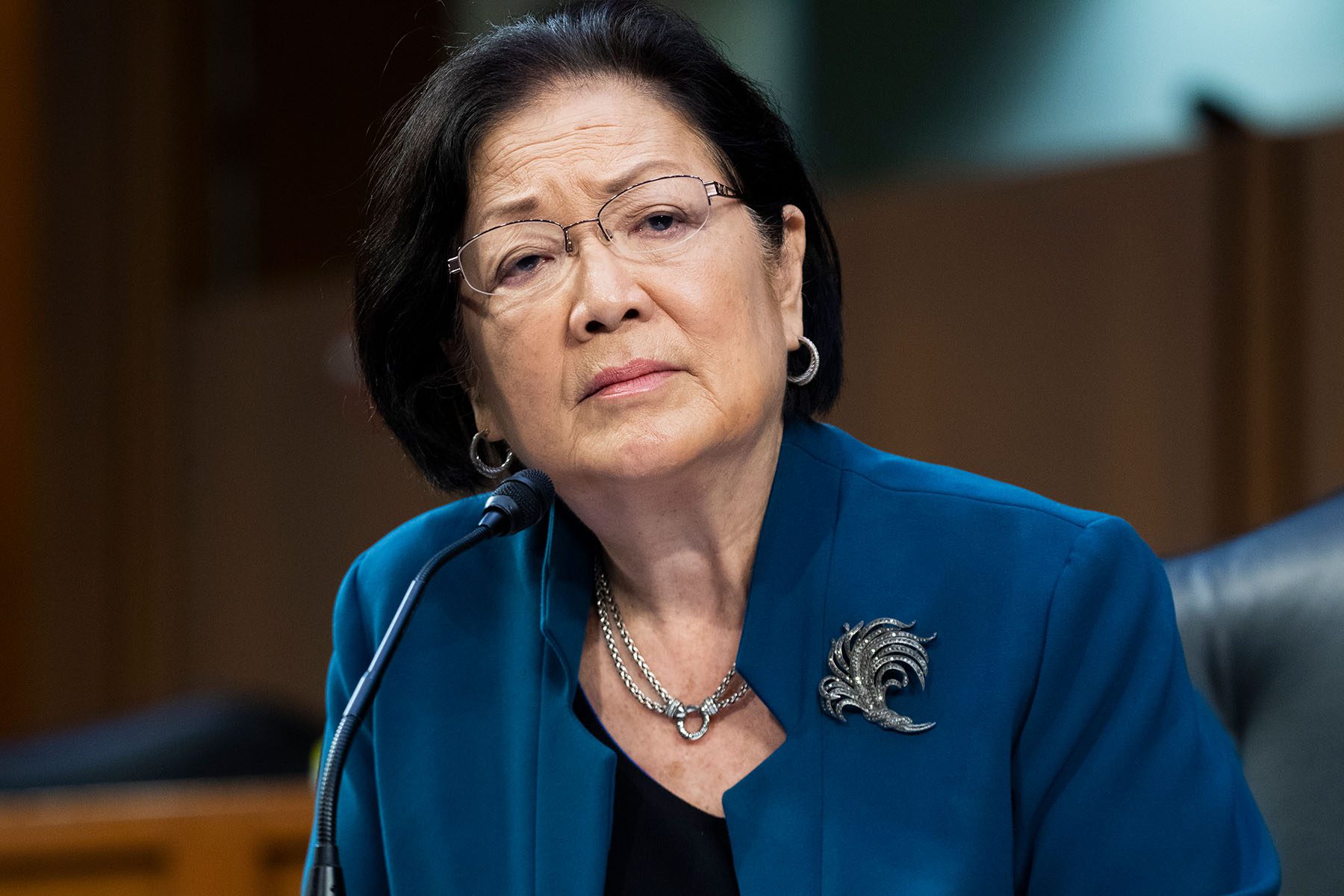Her phone kept pinging with text messages that read: “The day is here.”
Allison Gill, a 48-year-old disabled veteran, was working from home that morning and knew exactly what had happened: The Supreme Court announced its decision overturning Roe v. Wade — which upheld for nearly 50 years the right to an abortion.
“There was a sense of anxiety and panic, not for myself but for everyone,” said Gill, who has been diagnosed with post-traumatic stress disorder connected with military sexual trauma. She told The 19th she couldn’t help but think about all of the military women who are in the same situation she faced decades ago – pregnant and unable to obtain an abortion on base.
“Oh my God, they’re trapped,” she said.
In the 1990s, a 21-year-old Gill was drugged and violently raped while serving in the military. She was one of the first and only women in the Navy’s nuclear program, which included hundreds of other service members. Gill, who has written about her experience on social media and in The Washington Post, said that officers discouraged her from reporting the rape – something that soon affected her access to health care when she discovered the attack had resulted in a pregnancy. Because Roe was still in place, she said she didn’t have to ask for leave and just walked off base to a Planned Parenthood one weekend to seek an abortion. The process was “secret and out-of-pocket,” she said.
Lloyd J. Austin III, secretary of the Defense Department, issued a statement shortly after the Court’s decision on Roe was announced to reassure the military community that “nothing is more important to me or to this Department than the health and well-being of our service members, the civilian workforce and DoD families.” And Gilbert Cisneros, Jr., undersecretary of the Defense Department, told Pentagon leadership in a memo that “there will be no interruption” to “covered abortion” care for service members, their dependents and civilian department employees. The Department of Defense, bound by the funding restrictions of the Hyde Amendment, can cover abortions only for people whose pregnancies were the result of rape or incest or endanger the life of the pregnant person. Emergency and convalescent leave policies and the process to request sick leave will also remain unchanged, according to the memo.

But because the department does not cover other abortions, service members who do not report rape or incest, or whose lives are not immediate endangered by pregnancy, must find their own providers and pay out of pocket. This has huge implications for people who, though employed by the federal government and based on federal property, need to seek health care off base. When the Supreme Court overturned Roe on June 24, more than a dozen states immediately ended abortion or set in motion policies to severely limit access. Several hundred thousand service members are stationed on bases in these states by no choice of their own. As it stands, the Department of Defense is only authorized by federal law to perform and pay for a small percentage of abortions, and abortion services can only be offered on installations large enough to have the necessary facilities. In 2021, for instance, only 14 abortions were performed on all Air Force, Army, Marine Corps and Navy bases combined, according to military data obtained by The Military Times.
Janessa Goldbeck, a Marine Corps veteran who served as a combat engineer officer and a uniformed victim advocate, said it’s important to keep in mind who is most impacted. Women of color are the population most impacted by the end of Roe and also the fastest-growing demographic in the veteran community.
Despite assurances from the Defense Department, both Gill and Goldbeck agreed the Supreme Court’s decision has severely limited access to abortions due to unofficial barriers within the military.
“Anyone who’s served knows that the chain of command can deny your leave for any reason: You didn’t make your bed properly at inspection or maybe your unit did poorly on an exercise,” said Goldbeck, who is now the chief executive of Vet Voice Foundation, a nonprofit group dedicated to elevating veteran voices in policy discussions. “There’s a lot of power that senior officers have, and that means that, theoretically and probably very likely in the future, a service member’s leave could be denied by a superior who has their own feelings about abortion.”
The majority of active-duty service members are younger than 25, Goldbeck added, and will now be expected to risk retaliation and ostracization by disclosing to their superiors that they need an abortion or have been sexually assaulted and require out-of-state care.
Nearly 1 in 4 women in the military report having experienced sexual assault, according to a 2016 analysis published in the peer-reviewed journal Trauma, Violence and Abuse. Reports of sexual assault in the military and subsequent reports of retaliation continue to rise. And according to research conducted by the RAND Corporation, which provides research to the U.S. Armed Forces, the vast majority of incidents go unreported.
“I can’t imagine being an 18-year-old somewhere in a state where it’s criminalized and feeling confident walking into a medical facility on my base to report that I needed an abortion if I’d been sexually assaulted,” Goldbeck said. She noted that there’s now a heightened fear among service members that they may be arrested or charged with a crime when they go off base in states where seeking an abortion is illegal, and then subsequently be kicked out of the military and lose all related benefits.
It’s not yet clear how or if military service members will be prosecuted or penalized for seeking abortions in states with bans in place. However, in his memo to Pentagon leadership, Cisneros said: “It is the Department of Justice’s long-standing position that states generally may not impose criminal or civil liability on federal employees who perform their duties in a manner authorized by federal law.”
On June 3, members of the Democratic Women’s Caucus and the Pro-Choice Caucus introduced the MARCH for Servicemembers Act, which would allow military medical treatment facilities to provide abortion services with all associated costs covered by the military. The bill was referred to the Committee on Armed Services and awaits action by the Senate. Two weeks later, members of the House sent a letter to the secretaries of the Department of Defense and the Department of Homeland Security. Led by Reps. Jackie Speier and Jason Crow, both Democrats, the letter called for better access to reproductive health services.
On June 30, a group of senators agreed that defense officials needed to do more for the military community, particularly in states where seeking an abortion can result in criminal charges. A letter signed by Sens. Mazie Hirono, Richard Blumenthal, Tammy Duckworth, Kirsten Gillibrand, Elizabeth Warren, Jacky Rosen, Michael Bennet and John Hickenlooper and sent to the head of the Defense Department demands more answers and more action to ensure service members can “continue accessing safe reproductive health care no matter where their military service sends them.”
The senators asked how service members will be protected from legal prosecution in states where abortion services are curtailed; whether there are criminal implications for those who grant leave for the explicit purpose of seeking an abortion; how service members will retain their right to privacy; how the Department will protect a service member from command influence, retribution or retaliation, including their performance evaluations and promotions; and whether those who travel to seek an abortion will be given convalescent leave after the procedure.
“This untenable situation violates the trust servicemembers place in the Armed Forces when they swear an oath to defend the Constitution and this country,” the letter, led by Hirono, a Hawaii Democrat, reads. “It further threatens recruitment and retention as servicemembers will undoubtedly elect to leave the military rather than run the risk of being assigned to a duty station where they and their family will be denied fundamental rights.”

The Supreme Court’s decision has “taken a wrecking ball” to military readiness, national security overall and overall morale, Goldbeck said.
“That sense of cohesion of a unit, where there’s trust and confidence that the systems in place will protect every service member and that we work together as a team — [the end of Roe] undermines that right out of the gate.”
There will also likely be logistical complications, Gill added. People forced to carry their pregnancies will need to take parental leave. There will likely be a spike in mental health issues associated with postpartum depression and anxiety — which will impact retention and the rate of promotions. Many members of the military have specialty jobs and are the only ones in their role in a given unit. Pulling these soldiers out of training could delay an entire unit’s deployment.
For Gill, the end of Roe made even more apparent how little autonomy service members are afforded for the sake of national security.
“What a lot of people, including myself before I joined the military, are shocked to find out about being in the military is that the government owns your body,” Gill said, citing limits on tattoos and adding that all medical procedures and vaccinations are overseen. “There is a military mentality that your body is not yours. You are general issue. You are military equipment, and the readiness of the force is the ultimate goal, not how you feel as a person.”







